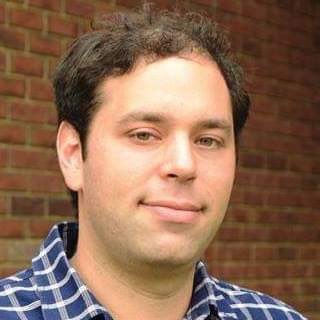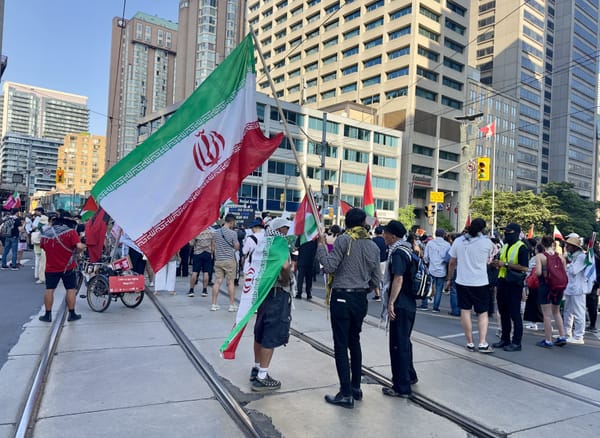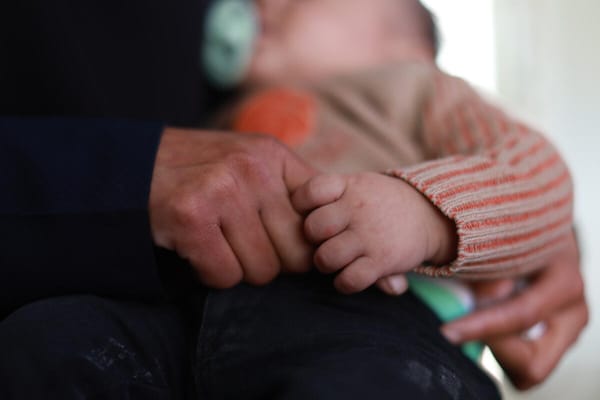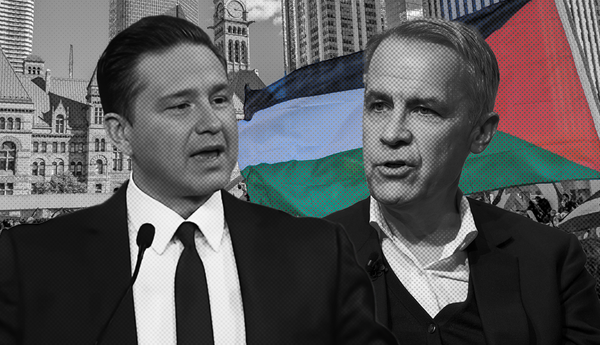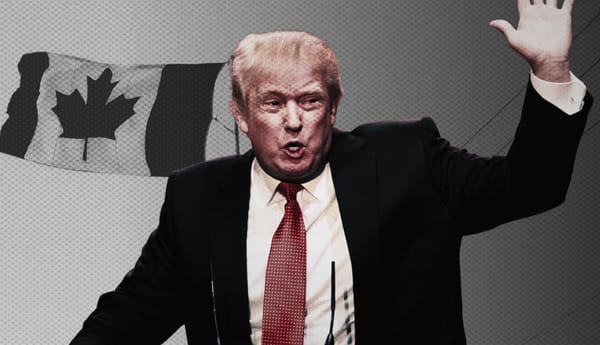After three years of taking a wrecking ball to Alberta’s public sector, and two years of horrific negligence on the COVID-19 file, it appears the reign of Premier Jason Kenney has come to a close.
Last week, Kenney received the slimmest of majorities — 51.4 per cent — in his long-anticipated United Conservative Party (UCP) leadership review, triggering the announcement of his resignation, despite having previously said he’d consider anything over 50 per cent a win. To put Kenney’s profound unpopularity in context, scandal-plagued former premier Alison Redford resigned in 2014 after receiving 77 per cent support in her final leadership review just a few months earlier.
Kenney has said he will resign from his position after a new party leader is elected, and that he won’t participate in the leadership race, meaning his political career is effectively over. This is definitely something worth celebrating, despite the plaudits he has received from his liberal opponents that make him seem like a stand-up guy who was just in over his head.
NDP leader and former premier Rachel Notley tweeted: “I want to thank Jason Kenney for his public service. There are obviously many things about which we don’t agree, but that doesn’t negate the time and sacrifice that goes into taking on the role of Premier. The work is never easy. The days are long and often difficult, as I’m sure today is. I wish Jason the best.”
Beloved former Calgary mayor Naheed Nenshi expressed his gratitude “for people who go into public service to try and make the community better,” thanking Kenney for his “decades of service” and wishing him “all the very best.”
This is in reference to a man who in the late ’80s began his political career imposing his rigid social conservative agenda in San Francisco. He boasted of having helped block LGBTQ people in the Bay Area from visiting their partners in the hospital during the AIDS crisis, which at its height killed more than 1,400 people in San Francisco annually.
And it’s not as if his cruel, callous disregard for the rights of LGBTQ people was some youthful indiscretion.
In July 2019, Kenney’s government repealed NDP legislation that expressly prohibited schools from notifying parents that their child is a member of a gay-straight alliance, except in extraordinary circumstances. Just three months ago, Kenney compared the plight of unvaccinated people with LGBTQ people being unable to visit their spouses at the height of the AIDS crisis, without a hint of irony.
This isn’t the behaviour of a man who entered public life to “make the community better,” as Nenshi foolishly suggested.
Kenney’s policies as premier undeniably did harm — they aren’t simply some abstractions you can just agree to disagree about. Chief among them was his handling of the pandemic.
In May 2020, Kenney dismissed the seriousness of the threat, calling COVID-19 an “influenza that does not generally threaten life apart from the elderly and the immunocompromised.”
In May 2021, Alberta became the COVID-19 capital of Canada and the U.S., with 440.5 daily cases per million people. Not even a month later, Kenney announced the pandemic was over, ushering in what he said was sure to be the “Best Summer Ever,” by announcing the province would drop all pandemic restrictions on July 1, a week from the beginning of the Calgary Stampede, which in 2020 was cancelled for the first time in more than a century.
Kenney was so confident in this course of action that the UCP sold hats emblazoned “Best Summer Ever, Alberta 2021,” on its website. Predictably, this approach led to a complete overwhelming of the province’s hospital system.
As cases continued to mount in August and active total ICU admissions reached triple digits, Kenney disappeared from public view for nearly three weeks. When he returned, Kenney claimed he had been in “daily contact” with staff who appraised him of the situation. That was a lie. CTV News later obtained a copy of his calendar, which had 19 days of “personal” time booked off, with just two COVID-19 updates scheduled.
Calling this a failure of leadership would be a vast understatement.
By mid-September, Alberta had the most people occupying ICU beds in the province’s history, leading the CEO and president of Alberta Health Services, Verna Yiu, to ask neighbouring provinces for assistance in bringing the situation under control. “It’s tragic that we are only able to keep pace with these sort of numbers because, in part, some of our ICU patients have passed away. And this reality has a deep and lasting impact on our ICU teams,” Yiu said.
Kenney had turned Alberta into an international embarrassment, with one infectious disease specialist telling the New York Times that Alberta’s healthcare system had “functionally collapsed.”
As a result of Kenney’s policies, more than 800 Albertans died of COVID-19 from August through October 2021. This resulted in Kenney issuing a half-assed apology, which he walked back at the same press conference. Asked if he feels personally responsible for the deadly failure of his policy, Kenney said, “I don’t think this is about me, I think this is about protecting our hospitals, and we have to do what is necessary to do so.”
Kenney also used the pandemic as an opportunity to spread anti-Asian racism during a time of increased violence, wondering aloud in December 2021 what the “next bat soup thing out of Wuhan” will be.
The people that successfully organized against Kenney within the UCP also believe he handled the pandemic poorly. They think, however, that he did too much to mitigate the spread of COVID-19.
Danielle Smith, a former leader of the now-defunct Wildrose Party, which subsumed the PCs to establish the UCP, is running to replace Kenney. Last year, Smith compared vaccine passports to Nazi experiments on Jewish prisoners, and has endorsed hydroxychloroquine as a legitimate COVID-19 treatment.
Another former Wildrose leader who has announced he’s running is Brian Jean, who lost to Kenney in the 2017 UCP leadership race, which is under RCMP investigation for allegations of cheating on the part of Kenney’s campaign. Jean successfully made his return to politics earlier this year by winning a Fort McMurray-Lac La Biche byelection, campaigning on removing Kenney from power and emphasizing that unlike Kenney, he isn’t a “globalist” beholden to the World Economic Forum.
Given the calibre of people lining up to replace Kenney, there’s great risk that his successor could be a lot worse, and potentially more palatable for voters who supported the UCP in 2019 but grew tired of him. Kenney’s misfortunes were entirely of his making and demonstrate the futility of attempting to balance the Red Tory and hard-right elements of a party that has been almost entirely subsumed by the latter.
Regardless of what comes next, Kenney’s demise is itself worth celebrating. Despite his religious pretence, Kenney is a wicked man who has caused incalculable amounts of pain and suffering throughout his political career.
There’s no valid reason to suggest otherwise.

